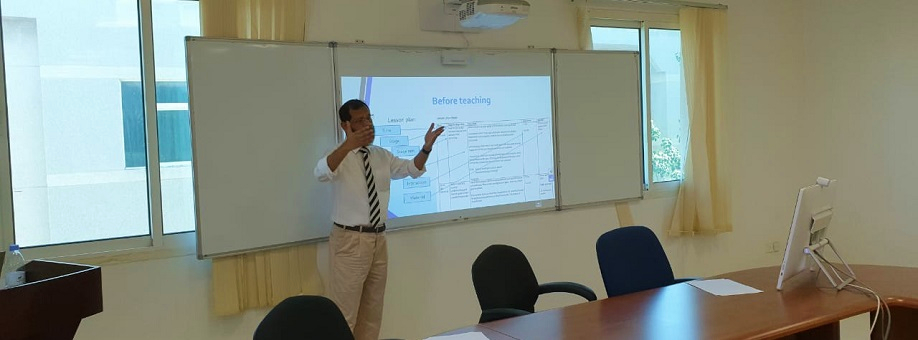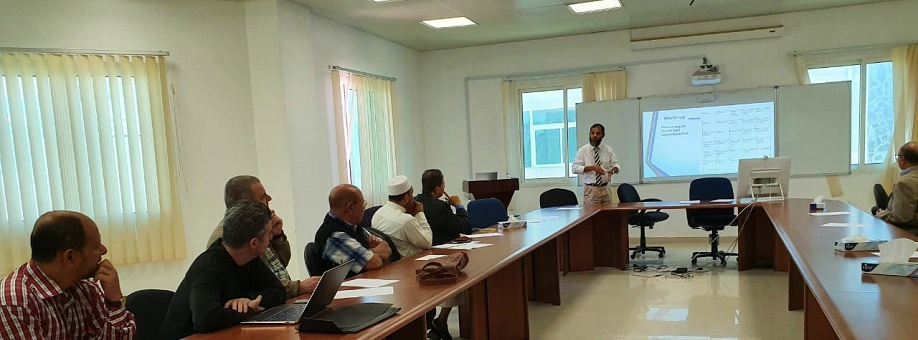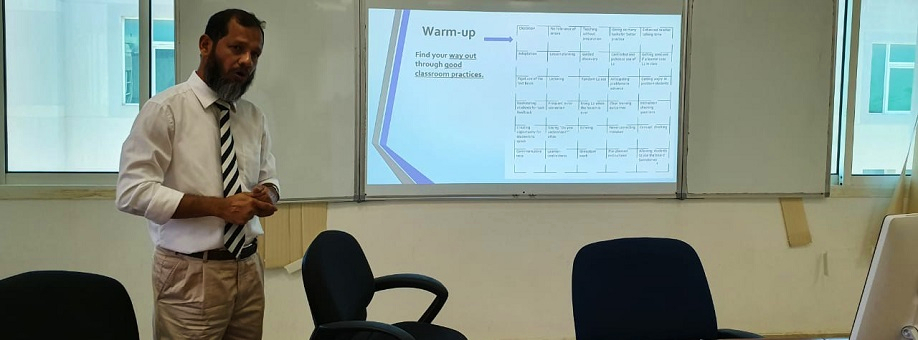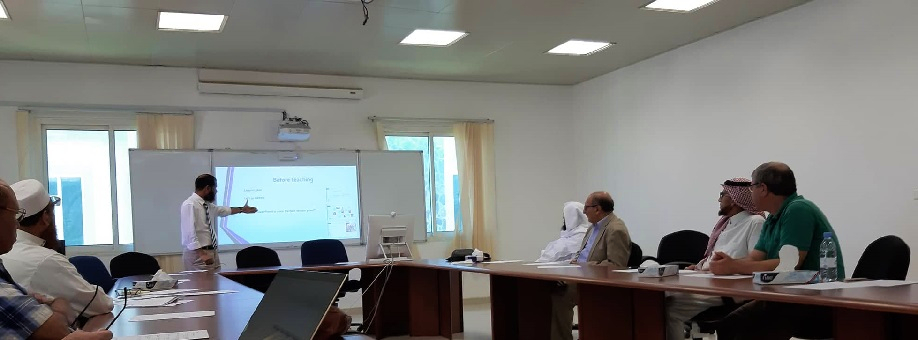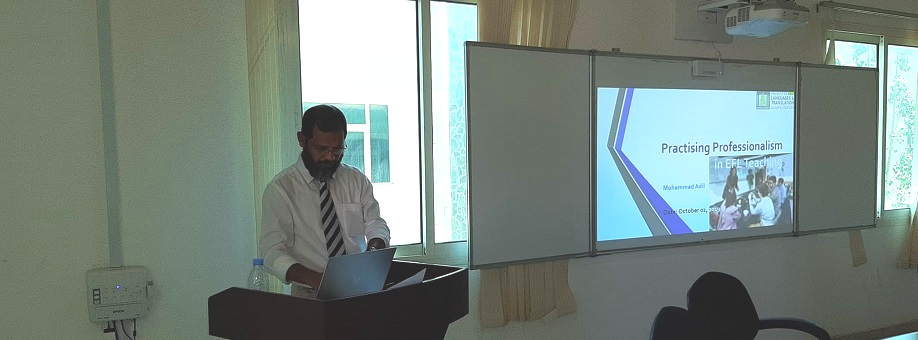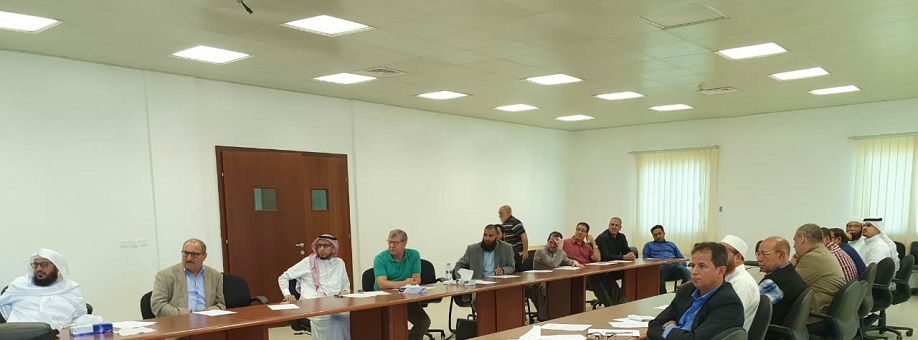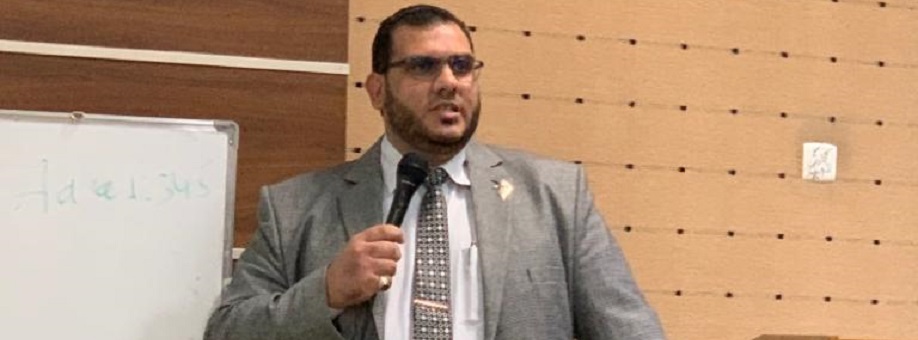Accreditation Committee Gets Down to the Details
Vice Dean of Academic Development and Quality, Dr. Abdulrahman Almosa, sponsored a Self-Evaluation Scales (SES) and Self-Study Report (SSR) training workshop on Saturday, October 12, 2019. The event was co-sponsored by the Deanship of Academic Development and Quality. In attendance were the various members of the accreditation committee and the pertinent sub-committees. It is worth noting that both male and female team members attended the event at the main campus.
Head of the Academic Development and Quality Unit, Dr. Hasan Jaashan, began the event by presenting on the purposes and requirements of the SES report. "Today, I hope to clarify certain questions and to help the teams avoid the common pitfalls associated with an initial submission for accreditation," he said. Dr. Jaashan took questions from the audience and focused the group on hypothetical problems that could surface in the preparation of the SES. Program Coordinator, Dr. Fadi Al-Khasawneh, served as an additional resource during the question and answer session to help assure that everyone had a common understanding of the outstanding accreditation work.
Quality Consultant at the Deanship of Academic Development and Quality, Dr. Ahmad Farid, expounded upon the SES report basics covered by Dr. Jaashan. Using an overhead projector and handouts, he walked the participants through the detailed minutia of the SSR requirements. He stressed the strict evidentiary requirements set forth in the accreditation approval criteria. He noted that successful National Commission for Academic Accreditation & Assessment (NCAAA) accreditation applicants produce a detailed and lengthy trail of documents and related records. This evidence is both cumulative over a period of years and provides incontrovertible support for the statements and or conclusions proffered. He emphasized that while links to our website are very useful, these alone are insufficient proof of claims as per NCAAA regulations. The body of evidence must be both broad and deep. The support package should include material from a variety of both academic and administrative sources. Note once again that it is important to have an unbroken chain of compelling, cumulative evidence as well. Such is required for a credible application package. Although the question and answer session was generally quite favorable, there are some open questions concerning evidentiary requirements.
The FLT is grateful to the Deanship of Academic Development and Quality for its co-sponsorship of the event and Dr. Ahmed Farid's well-received workshop. "Thank you all for giving up part of your weekend to attend this most important event. We are confident that with all of your hard work, we will be granted accreditation in the near future. The entire college is anticipating the celebration that will mark the accreditation confirmation," said Dr. Almosa.
The Faculty of Languages and Translation is dedicated to providing excellence in all aspects of its educational offerings. The FLT, its students, and alumni deserve national recognition for the quality of the program. The department is determined to secure such recognition by way of NCAAA accreditation in the near future.
Date: 10/13/2019
Source: Faculty of Languages and Translation

